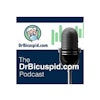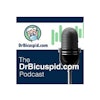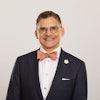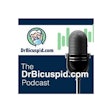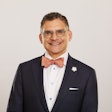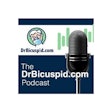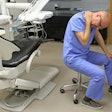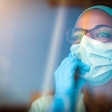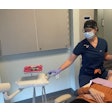Dental students who regularly engaged in at least one hobby may be better at cavity preparation, suggesting that having a pastime may help develop fine motor skills, according to a new study published on August 4 in the European Journal of Dental Education.
Hobbies like playing music or a sport and, specifically cooking, appeared to have the greatest positive effect on cavity preparation, the authors wrote.
“Students without any identified hobbies might benefit from task-specific training for fine motor skills improvement,” wrote the authors, led by Dr. Sowmya Shetty of the University of Queensland in Australia.
During dental school, students develop fine motor skills that include finger dexterity, posture, and progressive visual-tactile improvement during simulation training. Identifying students with natural aptitude for these skills helps educational institutions use resources wisely while improving students' gross and fine-motor skills.
To explore the relationship between preexisting hobbies and fine motor skills, 72 first-year students at an Australian University completed a questionnaire that measured their personal interests. Their performance on a foundational cavity preparation was assessed before and after five weeks of training, according to the study.
Of the 72 dental student participants, 26 only had one hobby, and seven had no hobbies. The hobbies that were most likely to be performed at least one time weekly were playing sports (53%), cooking (51%), and playing video games (44%).
At baseline, the highest mean cavity preparation was by students who had one hobby at 55.8% (95% confidence interval [CI]: 47.2 to 64.4). Meanwhile, students with no hobbies had a mean cavity preparation percentage of 42.7% (95% CI: 15.2 to 57.9). Furthermore, the highest mean cavity preparation percentage at baseline was playing music (51.7%; 95% CI: 41.5 to 61.9), cooking (50.3%; 95% CI: 45.1 to 55.5), and participating in sports (48.4%; 95% CI: 42.9 to 53.8), the authors wrote.
Additionally, students who cooked as their only hobby had the highest estimated mean improvement in cavity preparation (19.2%; 95% CI: 14.4 to 24.1). However, those with no hobbies only improved in cavity preparation by 11.7% (95% CI: 7.7 to 15.7), they wrote.
Moreover, the study's limitations, which included self-reported data about personal interests, hobbies, and past experiences, may introduce biases, the authors wrote.
This study may have noteworthy implications for intervention strategies and training, they wrote.
“Those requiring additional practice could receive more formal training and be encouraged to engage in relevant hobbies early in their academic journey, fostering skill development over time,” Shetty and colleagues wrote.

